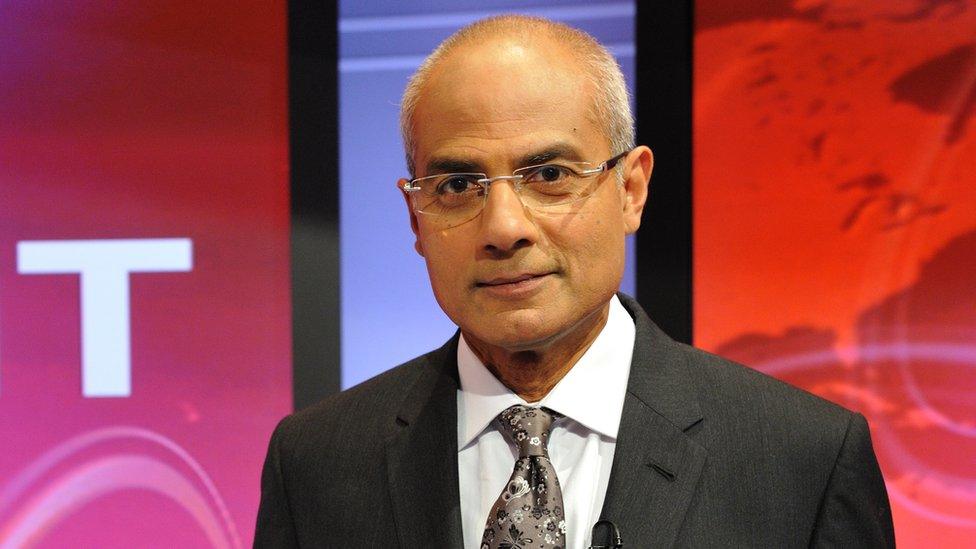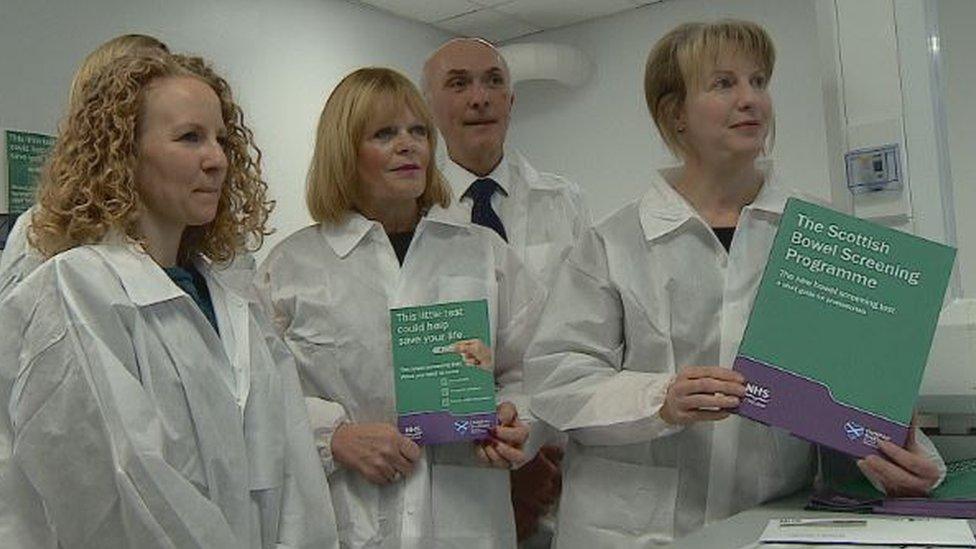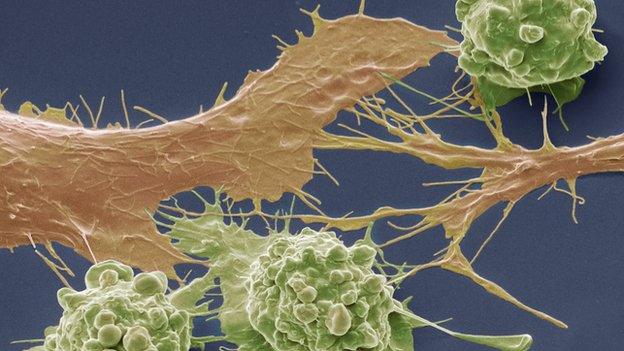George Alagiah: Better screening 'might have caught cancer'
- Published

Alagiah after returning from his treatment in 2015
BBC news presenter George Alagiah says his bowel cancer could have been caught earlier if the screening programme in England was the same as in Scotland.
The 62-year-old was first treated in April 2014 and returned to screen after 18 months, but he confirmed the stage four cancer had come back in 2017.
Screening is automatically offered from the age of 50 in Scotland, but only from 60 in England.
Over 40,000 people are diagnosed with bowel cancer in the UK every year.
Chances of survival for at least five years with stage four bowel cancer are less than 10%, while for stage one it is nearly 100%.
Allow X content?
This article contains content provided by X. We ask for your permission before anything is loaded, as they may be using cookies and other technologies. You may want to read X’s cookie policy, external and privacy policy, external before accepting. To view this content choose ‘accept and continue’.
In an interview with the Sunday Times, external, Alagiah, who lives in London, said the system in Scotland saw screening take place every two years.
"Had I been screened, I could have been picked up," he said.
"Had they had screening at 50, like they do in Scotland... I would have been screened at least three times and possibly four by the time I was 58 and this would have been caught at the stage of a little polyp: snip, snip."
The presenter is now supporting a campaign by Bowel Cancer UK and Beating Bowel Cancer to make cancer screening available to everyone in England from the age of 50.
"We know that if you catch bowel cancer early, survival rates are tremendous," he said.
"I have thought, why have the Scots got it and we don't?"

What are the symptoms of bowel cancer?
Bleeding from the bottom
A change in your bowel habits lasting more than three weeks
Abdominal pain, especially if severe
A lump in your tummy
Weight loss and tiredness
SOURCE: Beating Bowel Cancer, external

Alagiah found out he had bowel cancer in 2014 after complaining of blood in his stools.
He then underwent 17 rounds of chemotherapy and five operations to treat the disease in 2014, which had spread to his liver and lymph nodes.
He is now undergoing treatment again, having just had another round of chemotherapy and preparing in case doctors want to operate.
"If the surgeon has to go into me for a sixth time, he knows this is a guy who has been on the exercise bike, who has done his weights, who has eaten well, who has got himself into shape, so that they have the best chance," Alagiah added.
"That is my job."
- Published15 January 2018

- Published20 November 2017

- Published22 April 2015
